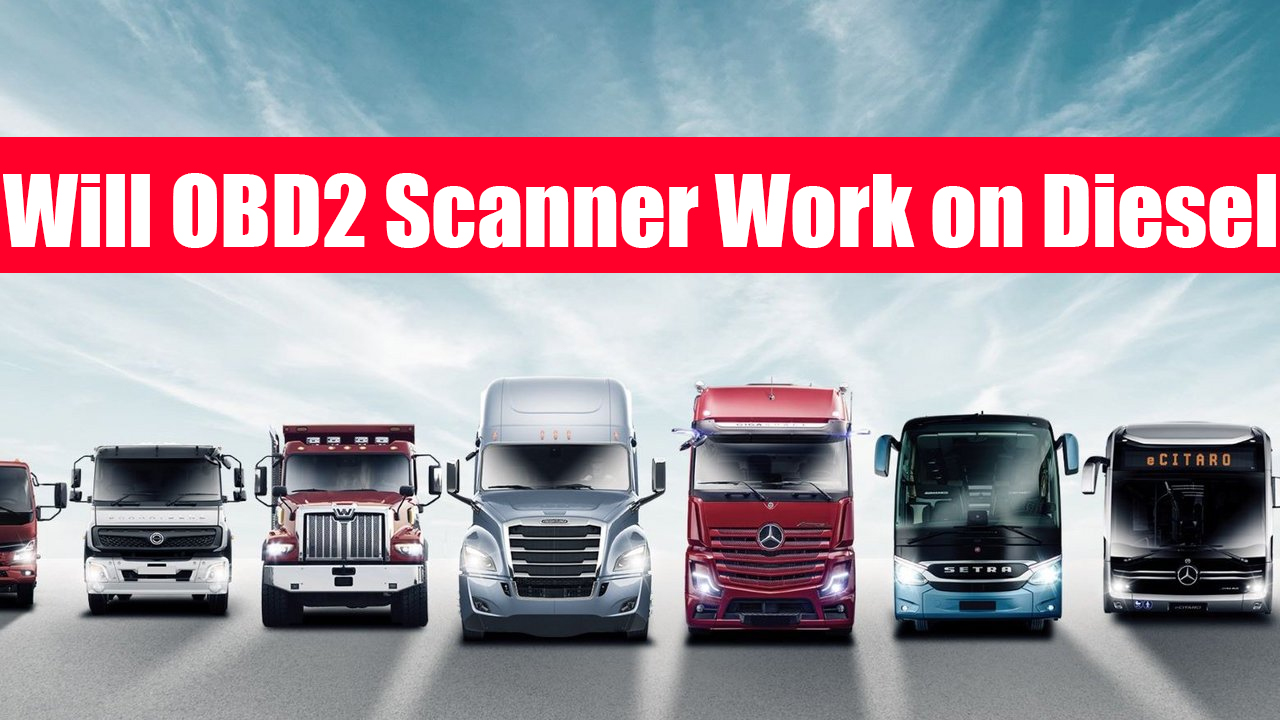Today we will discuss will the OBD2 scanner work on diesel. OBD2 scanners have become an essential tool for diagnosing and troubleshooting issues in modern vehicles. However, there is often confusion regarding their compatibility with diesel engines. In this article, we will explore whether OBD2 scanners can effectively work on diesel vehicles, providing you with the necessary information to understand their functionality and limitations.
Will OBD2 Scanners Work on Diesel?
The answer to this question depends on the type of OBD2 scanner and the specific capabilities it offers. OBD2 scanners are primarily designed to work with vehicles that comply with OBD2 standards, which are primarily gasoline-powered cars and light trucks. Diesel engines, on the other hand, typically follow different protocols, such as the J1939 or J1708, which differ from the OBD2 standard.
However, it is important to note that some OBD2 scanners have expanded functionalities that allow them to work with diesel vehicles. These advanced scanners are often referred to as “OBD2 Diesel” or “Heavy-Duty” scanners. They are equipped with additional protocols and connectors that enable communication with diesel engines.
The Compatibility Factors:
To determine if an OBD2 scanner will work on a diesel vehicle, consider the following factors:
- Scanner Type: Basic OBD2 scanners, also known as code readers, usually lack the necessary protocols to communicate with diesel engines. However, more advanced OBD2 scanners, such as those specifically designed for diesel or heavy-duty vehicles, are equipped with the required protocols and can effectively diagnose diesel-related issues.
- Connector Type: Most gasoline-powered vehicles utilize a 16-pin OBD2 diagnostic connector. In contrast, diesel vehicles often use different connectors, such as the 9-pin Deutsch connector or the 6-pin J1708 connector. Ensure that your OBD2 scanner supports the appropriate connector for diesel compatibility.
- Diesel-Specific Protocols: Diesel engines rely on specific protocols, such as J1939 or J1708, for communication and diagnostics. Advanced OBD2 scanners that support these protocols can effectively retrieve diesel-specific fault codes and provide accurate readings for troubleshooting purposes.
- Manufacturer Support: Before purchasing an OBD2 scanner for diesel, check if the manufacturer explicitly mentions diesel compatibility in the product specifications. Manufacturer support ensures that the scanner is optimized for diesel engine diagnostics, providing accurate and reliable results.
Conclusion:
While traditional OBD2 scanners are primarily designed for gasoline-powered vehicles, there are specialized OBD2 scanners available that can effectively work with diesel engines. These advanced scanners offer compatibility with diesel-specific protocols and connectors, allowing for accurate diagnosis and troubleshooting.
To learn more about the compatibility of OBD2 scanners with diesel engines, you can visit will obd2 scanner app review page This comprehensive resource provides additional insights and information on this topic.
In summary, if you own a diesel vehicle and require diagnostic capabilities, it is crucial to invest in an OBD2 scanner specifically designed for diesel or heavy-duty applications. By choosing the right scanner, you can efficiently diagnose and resolve issues, ensuring the optimal performance of your diesel vehicle.
